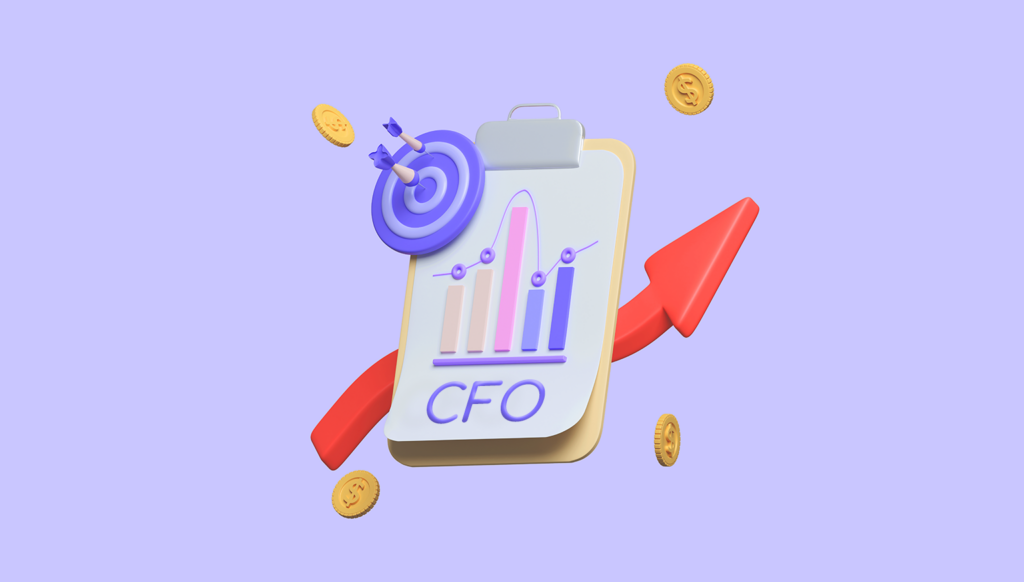When to hire a CFO is a common question we hear from companies. Of course, each company is unique, but for many of our startup clients, the answer is the same:
Consider working with an outsourced CFO if you do not intend to go public within the next 1-2 years.
Related: What the Difference Between a CFO and a Controller
Outsourced CFO Services: What Are They?
Let us first take a step back and discuss how a CFO performs.
Your Chief Financial Officer is in charge of all Financial matters in your organization. From a managerial standpoint, the CFO typically manages the teams in charge of tactical matters such as keeping accurate, timely accounts and paying your tax requirements.
On the strategic front, your CFO will monitor the company’s health and provide advice to help you meet your financial goals:
- Keep track of your financial metrics and provide regular updates on them.
- Review and analyze your KPIs
- Assist in the creation of your budget
- Create financial forecasts
- Assist in plans for future Growth
- Review of the board deck and creation of financial slides
- Evaluate your financial hygiene on a regular basis and recommend best practices.
An outsourced CFO would perform the same strategic role, but rather than joining your company as a corporate officer, they will operate on a contract basis with you. The majority of outsourced CFO services (also known as fractional CFO or virtual CFO services) are available on an hourly or subscription basis.
Helpful Resource: 6-E-commerce Kpis You Need To Keep An Eye On
Why Should I Contract Out My CFO’s Services?
There is no alternative to having a skilled and experienced finance specialist help guide business decisions, especially for companies whose founders lack a finance background.
So, what are the benefits of outsourcing for your startup or small business?
Outsourcing Helps You Save Money.
Hiring a full-time CFO is costly. The average CFO earns more than $300,000 per year in salary, plus bonuses, equity, and perks. That kind of personnel investment is simply not feasible for many firms.
Even if the company can tolerate the cost, the opportunity cost can be unreasonably high – that’s money that isn’t being invested in the rest of your organization.
This is where outsourcing comes into play. Paying a fractional CFO for a certain number of hours allows you to reap the perks of working with an experienced and expert finance leader at a far lesser cost than hiring a full-time CFO.
This can imply having access to a resource that would otherwise be beyond reach for tiny businesses like startups.
You Also Like to Read: Accounting For Startups And Small Businesses A Quick Crash Course
Outsourcing Saves Time.
There’s also the issue of what your organization requires. For many early-stage organizations, the requirement for a CFO stems from the necessity for expertise in specific areas such as forecasting, budgeting, or fundraising – all of which might be handled adequately by hiring outsourced CFO services. Hiring a full-time CFO would be excessive for these businesses.
The Benefits of Outsourced CFO Services
- Affordable Growth.
Many small businesses cannot afford a full-time CFO. Virtual CFO services enable your business to access CFO-level skills and growth ideas at a fraction of the cost.
- Greater Adaptability
Startups move quickly, and what you need now may be obsolete tomorrow. Outsourced CFO services enable you to scale your engagement as your business grows.
- A Different Point of View
An outsourced CFO brings a fresh perspective to the table. Because they aren’t involved in your day-to-day operations, they can look at your figures objectively and compare them to market benchmarks.
And, because fractional CFOs typically work with many customers in their area of specialization, they may apply insights gained from a broader range of experience to your organization.
Related: Annual Budgeting Guide For Startups
How to Select the Best CFO Services Provider
Like an in-house appointment, your fractional CFO must be a good fit for your organization. Here are a few things to remember:
- Relevant work experience
Different sorts of businesses in different markets and verticals may have different KPIs to prioritize and obstacles to prepare for. Look for a virtual CFO supplier who has worked at a similar company. For example, if your company provides SaaS, your fractional CFO should be conversant with SaaS business models and critical KPIs such as ARR. If you expect to fundraise soon, hire an outsourced CFO who has previously raised funds.
- Your Purposes
CFO services providers typically provide a variety of services; for example, our team at Countick may assist with budgeting, forecasting, KPI analysis, board deck guidance, and other tasks.
To get the most out of your fractional CFO, consider the problems you’re attempting to tackle and the solutions you’re aiming for. It could be as detailed as requiring specific analysis or as vague as simply needing instruction on what critical benchmarks you should aim for.
Knowing your goals before hiring a fractional CFO can help you determine what questions to ask and what criteria/experience to seek.
- Service team vs. Consultant
Virtual CFOs come in all shapes and sizes. You could hire an independent consultant to work with you one-on-one, or you could hire a CFO services team, which is made up of a group of CFOs who work together to help you achieve your goals.
A single consultant may be less expensive, but a group offers the benefits of multiple experts and faster turnaround times.
Employing a finance expert does not have to be as expensive as employing a corporate officer. As your company grows, consider hiring an outsourced CFO to provide the required expertise at a cost you can afford.




